Sentence construction Normal Building Vocabulary Worksheets for Ages 3-9
6 filtered results
-
From - To
Enhance your child’s language skills with our engaging Sentence Construction Normal Building Vocabulary Worksheets, designed for ages 3-9. These worksheets provide fun, interactive activities that help young learners master sentence formation through playful exercises. Tailored to enhance vocabulary and grammar, our resources promote creativity and confidence in writing. Each worksheet features colorful illustrations and age-appropriate challenges, making learning enjoyable and effective. Watch your child flourish as they explore new words and construct meaningful sentences. Perfect for classrooms or home use, these essential tools support literacy development in an exciting and accessible way. Start your child’s journey to becoming a confident communicator today!
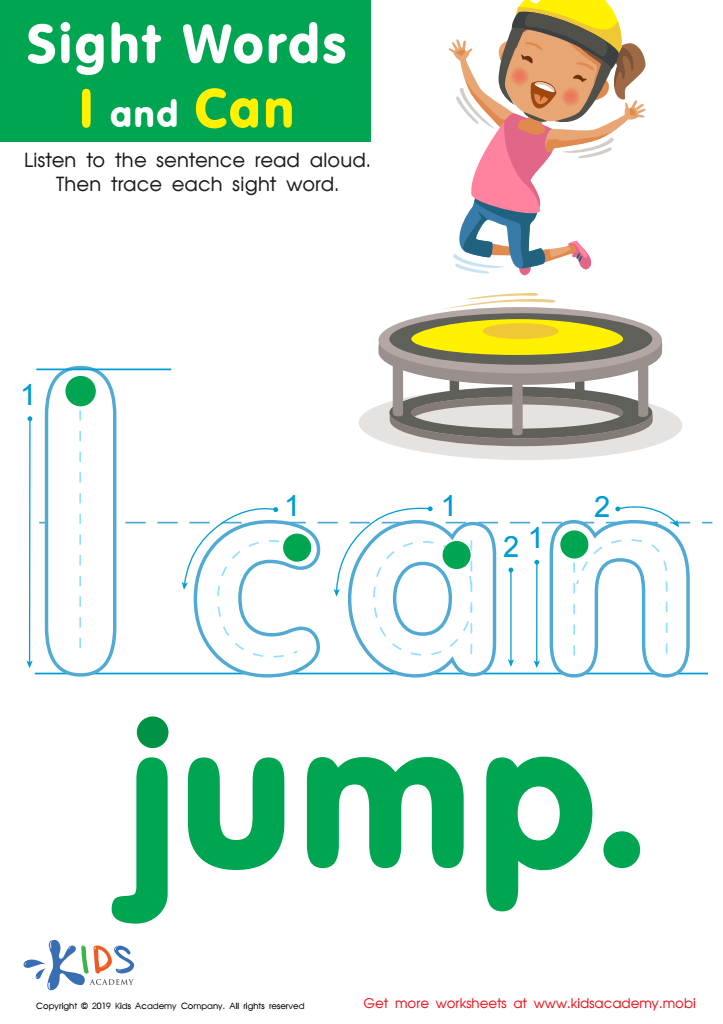

Sight Words I Can Worksheet
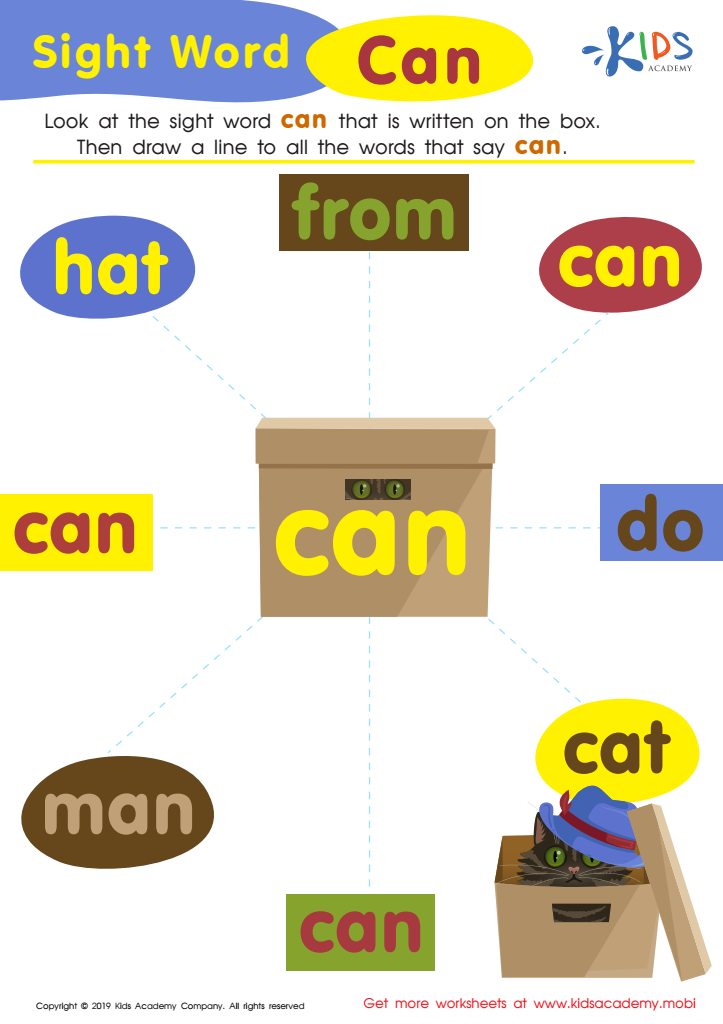

Sight Word Can Worksheet
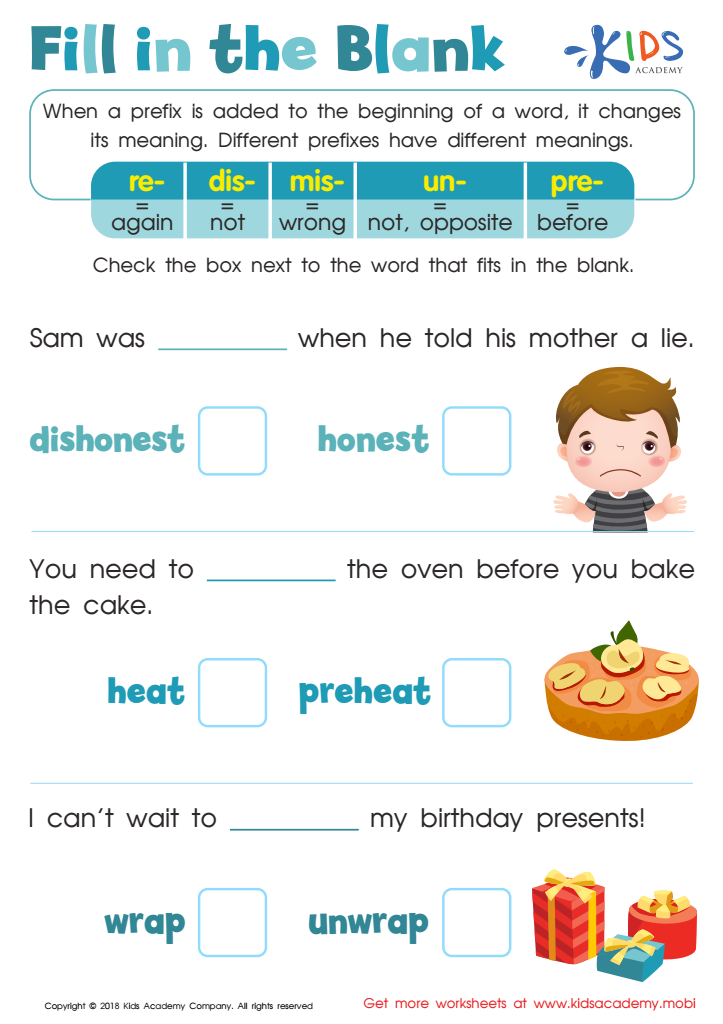

Reading: Fill in the Blank Worksheet
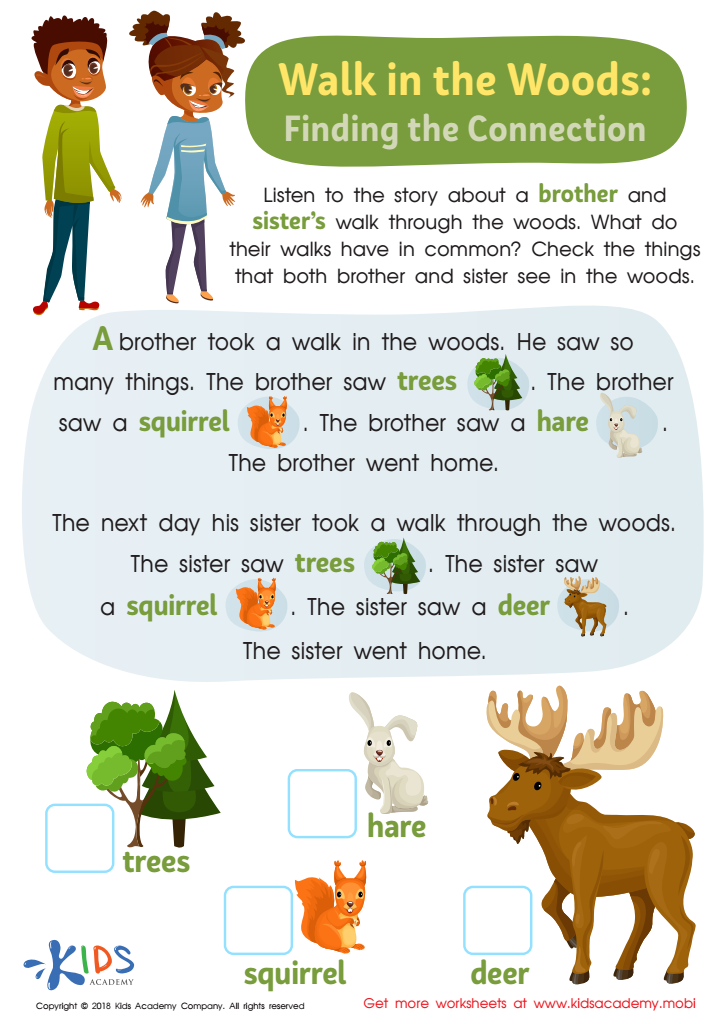

Walk In the Woods: Finding Connections Worksheet
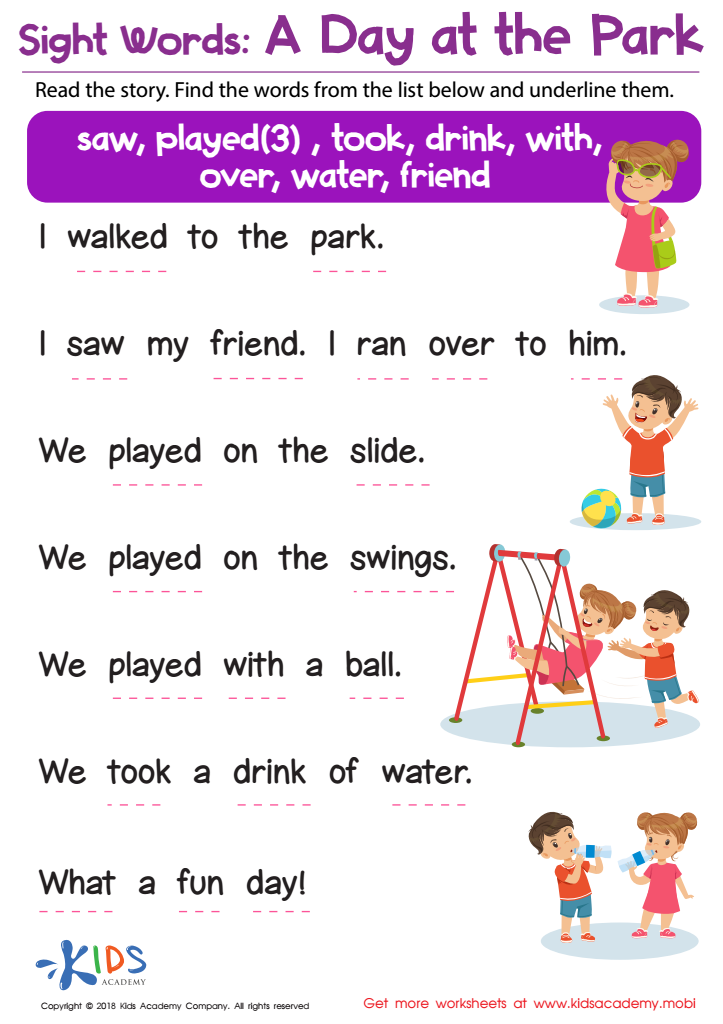

Sight Words: A Day at the Park Worksheet
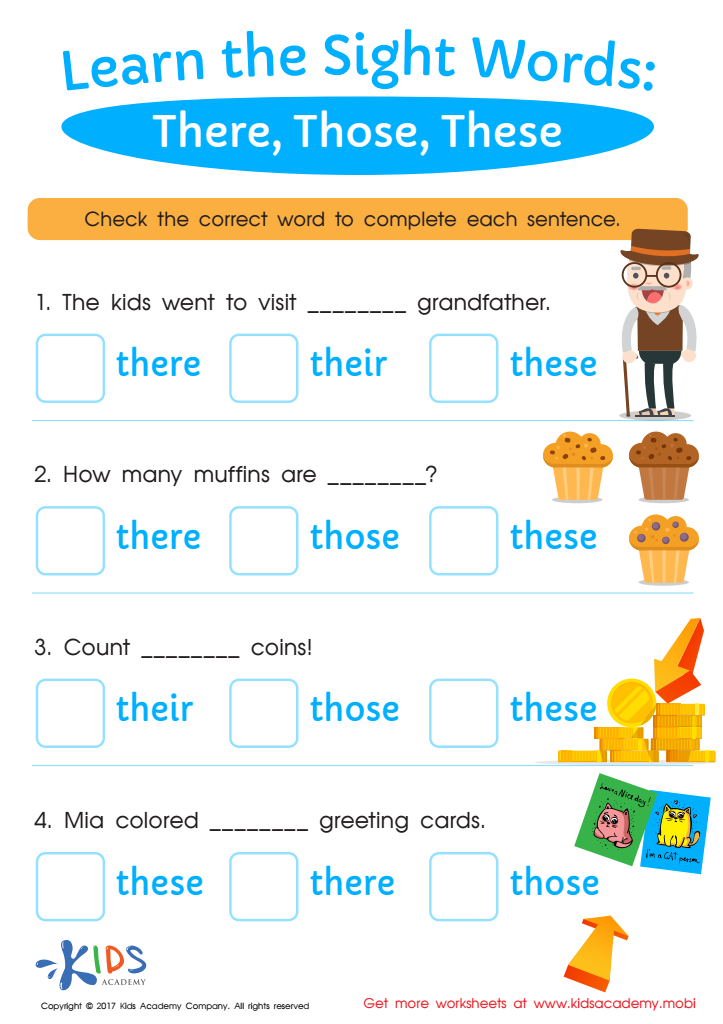

There, Those and These Sight Words Worksheet
Sentence construction and vocabulary building are crucial components of language development for children aged 3-9. During these formative years, children's brains are like sponges, absorbing new information and skills. Parents and teachers play an essential role in fostering this development.
Firstly, strong sentence construction enhances communication skills. When children learn to form complete sentences and express their thoughts clearly, they gain confidence in sharing ideas and participating in discussions, both in school and at home. This lays a foundation for effective interpersonal skills essential for future success.
Additionally, a robust vocabulary is linked to overall literacy development. The broader a child’s vocabulary, the better they can understand and engage with texts, facilitating reading comprehension. This is important not only for academic outcomes but also for their ability to navigate social situations effectively.
Moreover, engaging in vocabulary-rich dialogue and encouraging creative sentence construction fosters critical thinking skills, as children learn to express scenarios and feelings precisely. This also nurtures their creativity, enabling them to articulate thoughts in imaginative ways.
Ultimately, investing time in building vocabulary and improving sentence construction equips children with the tools they need for lifelong learning, empowering them academically and socially.
 Assign to My Students
Assign to My Students





























